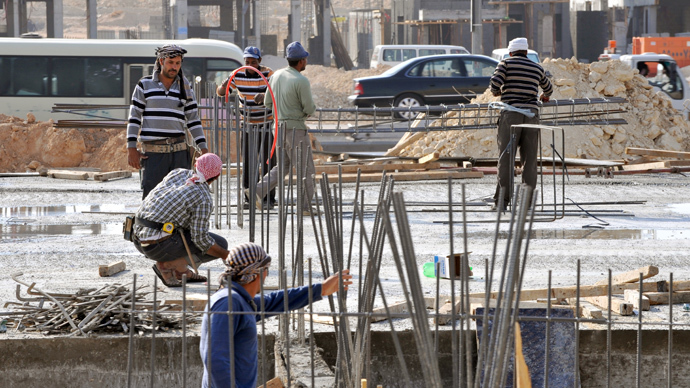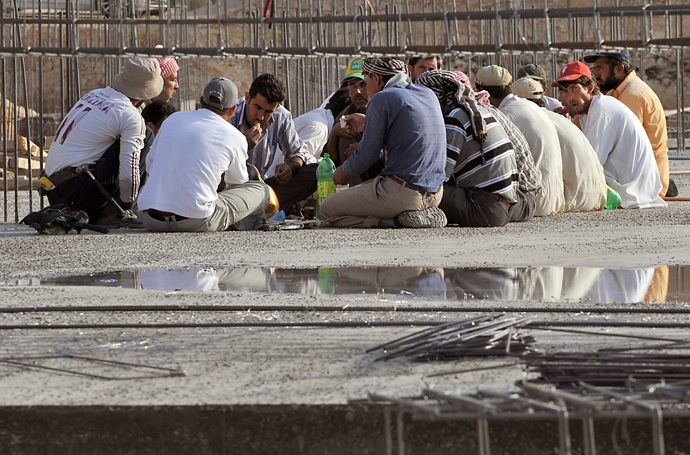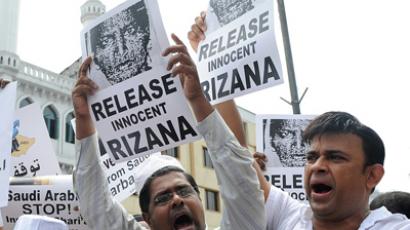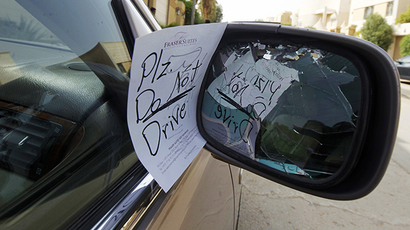‘Treated like animals’: Reports of abuse as S. Arabia forces out thousands of illegal migrants

The Philippines is checking on reports of abuse in Saudi Arabia’s crackdown on illegal workers after its citizens claimed they were “treated like animals”. Thousands are said to have been arrested as Riyadh allegedly seeks to create more jobs for locals.
Thirty Filipino workers expelled from Saudi Arabia returned home
on Monday and said they were abused amid a crackdown on illegal
immigrants.
AFP cited Yvonne Montefeo and Amor Roxas, who said that Saudi
authorities “treated us like animals" and that their
“feet were chained".
However, before jumping to conclusions, Philippine authorities
said they were seeking to interview the workers to check their
complaint.
"We've been making the rounds of police stations, detention cells
and other areas and [so far], there is no Filipino yet [who] has
been arrested," Foreign Affairs Secretary Albert del Rosario
was quoted as saying on Tuesday.
The Philippine Embassy in Riyadh estimates there are 660,000
Filipinos working in Saudi Arabia.
This is just a drop in a total of 9 million migrant workers in
the Arab country, mainly Bangladeshis, Indians, Nepalis,
Pakistanis, Filipinos and Yemenis. The majority of them are
unskilled laborers or domestic workers, jobs that Saudis usually
try to avoid.
The Kingdom’s government hopes by reducing the number of illegal
workers they will create more work opportunities for Saudi
job-seekers, according to the Saudi Gazette.

In the past seven months during which authorities obliged them to
fix their legal status or leave the country, nearly a million
migrants have returned home.
The crackdown started in March of this year, but the Saudi
government offered an amnesty to allow workers to legalize their
stay with a deadline of November, 3.
On Monday as the grace period expired, thousands were reportedly
arrested by inspection squads from the
ministries of labor and interior.
A total of 1,899 men and women were arrested in Jeddah, according
to Nawaf Al-Bouq, spokesman of Jeddah police. Some 2,200 were
arrested in Samta, 379 in the Eastern Province, 208 in Baha, 150
in Tabuk, 85 in Yanbu, and 80 in Hafar Al-Batin, according to
initial figures released by the authorities, the newspaper said.
Massive raids across the Kingdom cover all areas where illegal
immigrants assemble, Jeddah police chief Maj. Gen. Abdullah
Al-Qahtani told Saudi Gazette. This also includes inspection at
firms and shops in the jurisdiction of the teams from the Labor
Ministry.
On Tuesday parts of the capital were said to remain empty as
migrants seemed to be staying indoors in order to avoid arrest.
Even if they wanted, many workers still cannot leave the country
because they are missing official papers, including passports,
the Saudi Gazette reported Tuesday.
An undocumented worker can be jailed for six months to a year and
fined between $3,200 and $5,300.
The crackdown on migrant workers comes after decades of Saudi
authorities turning a blind eye to irregularities, such as
working without a permit, or in trades other than those
officially permitted.














